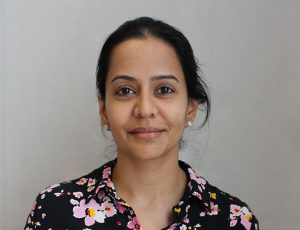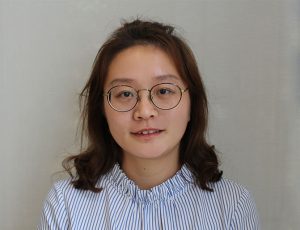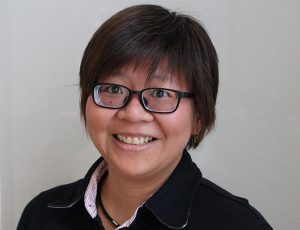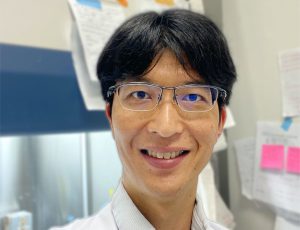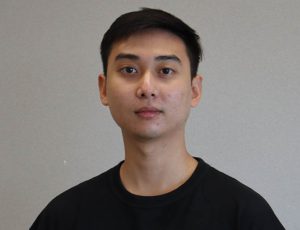
Patrick TAN
Epigenetics is the study of chemical modifications affecting DNA that do not involve overt changes in DNA sequence, and epigenetic alterations play an important role in cancer biology. Our laboratory is interested in applying integrative (epi)genomic approaches to address biological questions in cancer. We have a specific focus on gastric cancer, a leading cause of global cancer mortality. We seek to identify the complete repertoire of oncogenic pathways regulating specific aspects of the gastric cancer phenotype, and to use this knowledge to devise rational therapeutic strategies for gastric cancer patients.
gmstanp[at]duke-nus.edu.sg
Senior Principal Investigator, Cancer Science Institute of Singapore, NUS
Executive Director, Genome Institute of Singapore
Professor, Cancer and Stem Cell Biology, Duke-NUS Medical School
Executive Director, Precision Health Research Singapore
Professor Patrick Tan is a Senior Principal Investigator at the Cancer Science Institute of Singapore. Concurrently, he is Senior Vice Dean for Research at Duke-NUS Medical School (Duke-NUS), Executive Director of Precision Health Research Singapore (PRECISE) coordinating Singapore’s National Precision Medicine programme (www.npm.sg), Chief Scientific Officer at the Genome Institute of Singapore (GIS), Senior Scientific Advisor for Group Research at Singapore Health Services (SingHealth), and Professor (Adjunct) at Duke University, USA.
An internationally renowned cancer researcher, Prof Tan received his B.A. (summa cum laude) from Harvard University and MD PhD degree from Stanford University, where he received the Charles Yanofsky prize for most outstanding PhD thesis in physics, biology, and chemistry. Other awards include the President’s Scholarship, Loke Cheng Kim scholarship, Young Scientist Award (A-STAR), Singapore Youth Award, Chen New Investigator Award (Human Genome Organization), President’s Science Award, Japanese Cancer Association International Award, and National University of Singapore (NUS) Research Recognition Award. In 2018, Prof Tan received as Team Leader the American Association for Cancer Research Team Science Award - the first time an Asian team has won the prestigious award.
During the COVID-19 pandemic, Prof Tan (as ED GIS) led the establishment of the Stronghold Diagnostics Labs, one of Singapore’s largest COVID testing facilities, in partnership with A*STAR, the National University Health System and Temasek Holdings. For this and his other contributions, he was awarded the Public Administration Medal (Silver), Public Administration Medal (Bronze), Exemplary Public Servant award, and a Presidential Commendation (for Stronghold).
He is an elected member of the American Society for Clinical Investigation (ASCI), the Bioethics Advisory Committee (BAC), a Board Member of the International Gastric Cancer Association, Board of Editors for Science and Cancer Discovery, and on advisory committees for Qatar Precision Health Institute and Riyadh Biotech City.
Genomic and Epigenomic Heterogeneity of Stomach Cancer:
Our research focuses on (epi)genomic strategies to unlock the molecular and clinical diversity of gastric cancer (GC, aka stomach cancer), a leading cause of worldwide cancer mortality with high prevalence in many Asian countries. Understanding how individual gastric tumors vary in their molecular aberrations may allow us to refine therapies for different subgroups of patients.
Over the past 20 years, our research has yielded landmark discoveries on the molecular changes driving GC carcinogenesis, laying the foundations for personalized approaches to detection and therapy. These include one of the earliest transcriptional profiling studies of GC (Tay et al, 2003, Tan et al., 2011) leading to an international industry-sponsored multi-centre clinical trial (Yong et al., 2018), recurrent GC fusion genes (Tao et al., 2011), new tumor suppressor genes such as ARID1A (Zang et al., 2012), somatic copy number alterations identifying novel driver alterations (FGFR2, wild-type KRAS amplifications) and lineage-specific transcription factors (KLF5, GATA) (Deng et al., 2012, Chia et al., 2015) and epigenomic changes in GC (Zouridis et al., 2012). Our group is a member of the Singapore Gastric Cancer Consortium.
More recently, our group has identified higher-order chromatin topologies associated with specific GC molecular subtypes (Okabe et al., 2020), GC enhancers and super-enhancers (Ooi et al., 2016) and charted a comprehensive single-cell atlas of GC (Kumar et al., 2022). We uncovered alternate promoter usage in cancer, underlying tumor immune-editing and responses to immunotherapy pervasive across multiple cancer types (Qamra et al., 2017, Demircioğlu et al., 2019, Sundar et al., 2019). We have systematically analyzed pre-malignant intestinal metaplasia (IM), discovering new IM driver genes and genomic features associated with progression, including a role for microbiome-induced inflammation (Huang et al., 2018; Huang et al., 2023) Our discoveries have defined GC (epi)genomics from pre-cancer to cancer, with impact for our current understanding of tissue-specific carcinogenic mechanisms and enabling translation to personalized medicine and precision prevention.
Asian Molecular Diversity:
In collaboration with Prof Teh Bin Tean and A/Prof Steve Rozen, we have also studied other Asian-endemic cancers such as biliary tract cancers (Ong et al., 2012; Chan-on et al., 2013; Jusukul et al., 2017), breast tumors (Lim et al., 2014; Tan et al., 2015) and urogenital malignancies (Poon et al., 2013; Yao et al., 2017). One of our major discoveries was a mutational signature linked to exposure to aristolochic acid (a compound in certain Traditional Chinese Medicines) in urogenital and liver cancers from Asia that is now categorized as Signature 22 in the global compendium of cancer mutational signatures (https://cancer.sanger.ac.uk/signatures/sbs/sbs22/). Through the National Precision Medicine program, we are assembling PRECISE-SG100K, South East Asia’s most deeply phenotyped longitudinal cohort of 100,000 Singaporeans, comprising Chinese, Indian, and Malay ancestries (Wong et al., 2023).
Our group has also co-led the genomic sequencing of plants of significant cultural and social importance, such as Singapore’s national flower (Lim et al,, 2022) and durian (Teh et al., 2017). The publication of the durian genome drew world-wide media attention from diverse areas such as Nature, CNN, New York Times, BBC News, and Food and Wine magazine.





